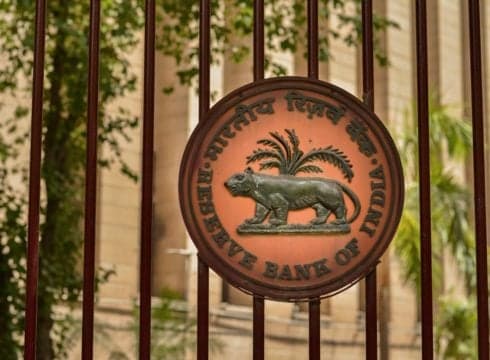RBI maintained its cautionary stance on crypto in the MPC press conference
RBI had earlier issued a notification to banks to stop blocking crypto transactions
RBI also asked banks to maintain due diligence in taking steps to counter illegal activities
Inc42 Daily Brief
Stay Ahead With Daily News & Analysis on India’s Tech & Startup Economy
The Reserve Bank of India (RBI) continues to be sceptical about cryptocurrencies. There is no change in its position on digital coins, RBI Governor Shaktikanta Das said on Friday (June 4).
“We have major concerns on cryptocurrency, which we have conveyed to the government. With regard to advice to investors, well, central banks don’t give any investment advice. It’s up to each investor to make his own appraisal, to do his own due diligence and take a very careful call with regard to his own investments,” he said at the press conference.
The development comes four days after RBI issued a clarification over banks blocking crypto transactions citing RBI’s 2018 notification. RBI in its notification said that since the Supreme Court had rescinded its old notification it cannot be cited by banks to block crypto transactions.
Several Indian banks had refused to allow account holders to make payments to crypto exchanges. Banks had been threatening to suspend the credit cards that are being used for crypto transactions, citing the 2018 RBI notification for banning crypto, which had been quashed a year ago.
Within the notification RBI issued to clarify the situation, it also said that banks must do customer due diligence in line with regulations governing standards for Know Your Customer, anti-money laundering, combating of financing of terrorism and obligations of regulated entities under the Prevention of Money Laundering Act. RBI added that banks must ensure “compliance with relevant provisions under Foreign Exchange Management Act (FEMA) for overseas remittances.”
Unlike fiat currencies, which are regulated by a sovereign state, cryptocurrencies are decentralised — meaning, a central authority does not control its demand, supply or track transactions. Cryptocurrencies offer a decentralised alternative for users to trade in virtual currencies that cannot be meddled with by financial institutions.
To learn more about the tale of cryptocurrencies story in India, read this article by Inc42
Cryptocurrencies shot up in valuation from around $200 Mn in March 2020 to $2 Tn in May this year. However, the government of India is yet to come up with a policy to regulate crypto. The Cryptocurrency and Regulation of Official Digital Currency Bill, 2021, which was expected to hit the Parliament floor during the budget session, has been deferred. Thus, India has no laws governing cryptocurrency exchange. Although Finance Minister Nirmala Sitaraman had ensured that there will be no complete ban on cryptocurrencies, the future of crypto hangs in a precarious situation of uncertainty.
The Blockchain and Crypto Assets Council (BACC), a part of the Internet and Mobile Association of India (IAMAI), is setting up a formal board to oversee the implementation of a self-regulatory code of conduct for member crypto exchanges. Its members had earlier held a webinar where they urged the government to quickly bring a regulatory framework in India that prevents illegal use of crypto while also fostering its development, not impeding it.
{{#name}}{{name}}{{/name}}{{^name}}-{{/name}}
{{#description}}{{description}}...{{/description}}{{^description}}-{{/description}}
Note: We at Inc42 take our ethics very seriously. More information about it can be found here.


